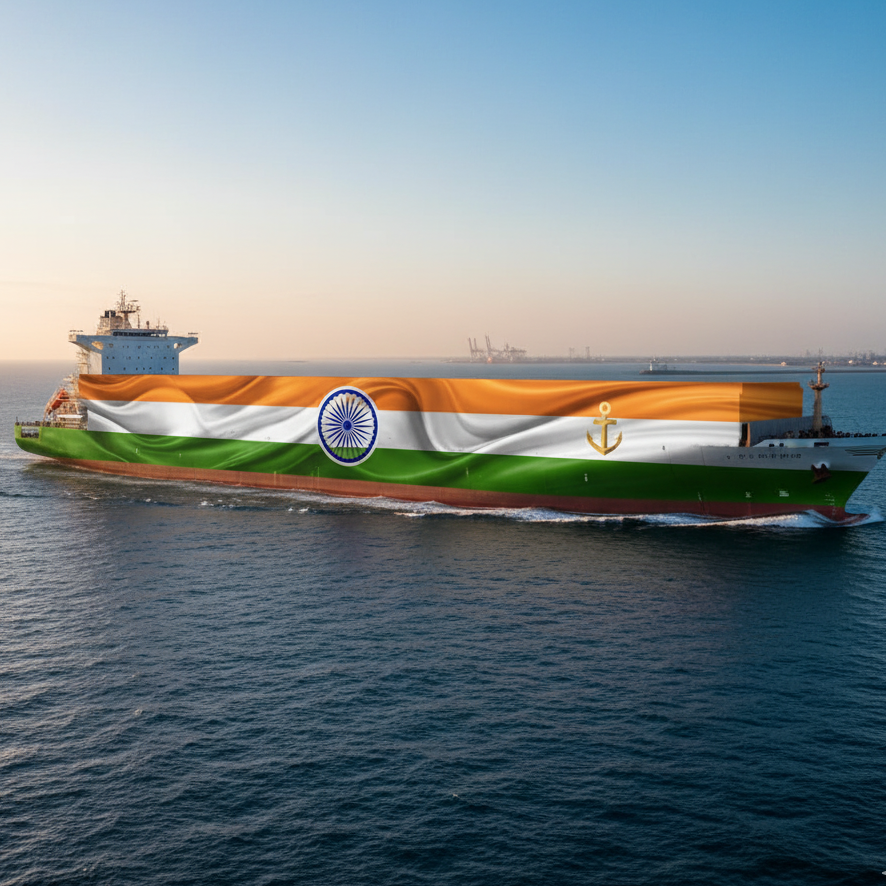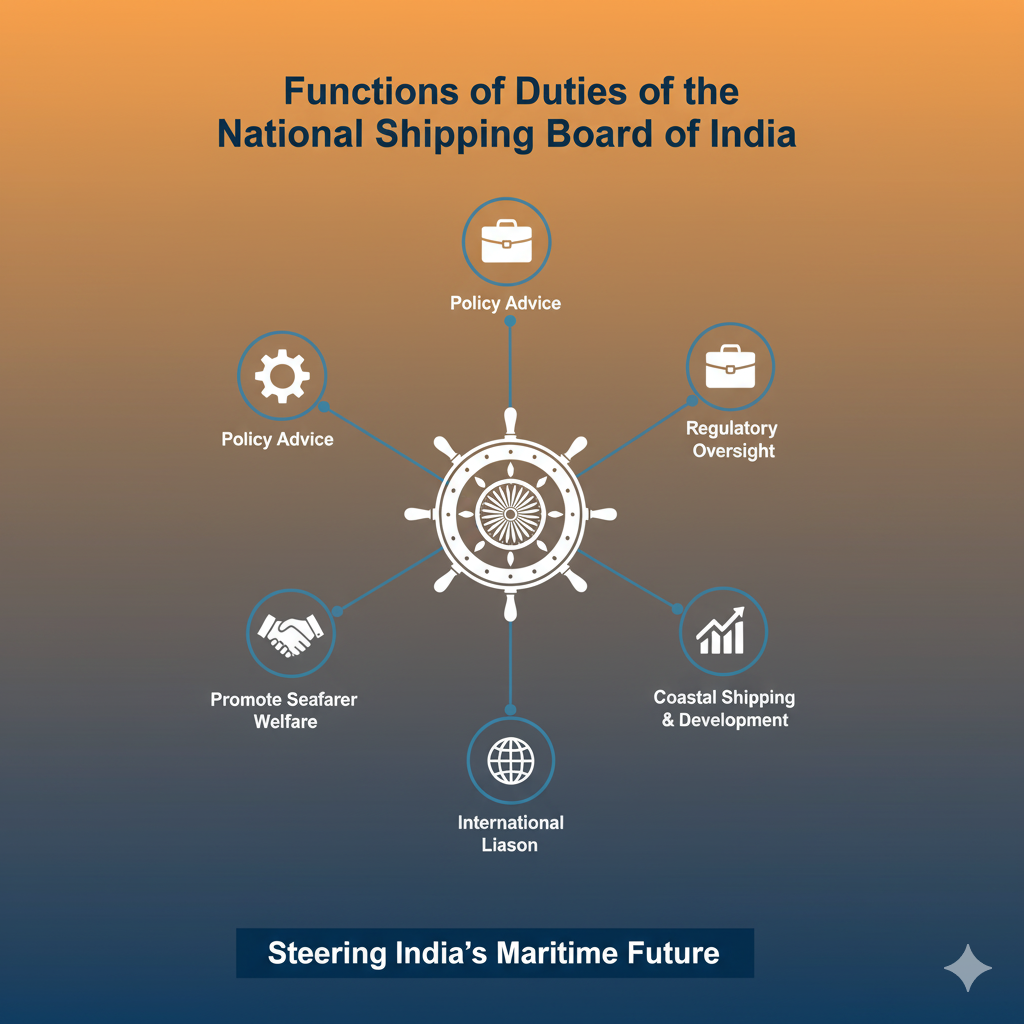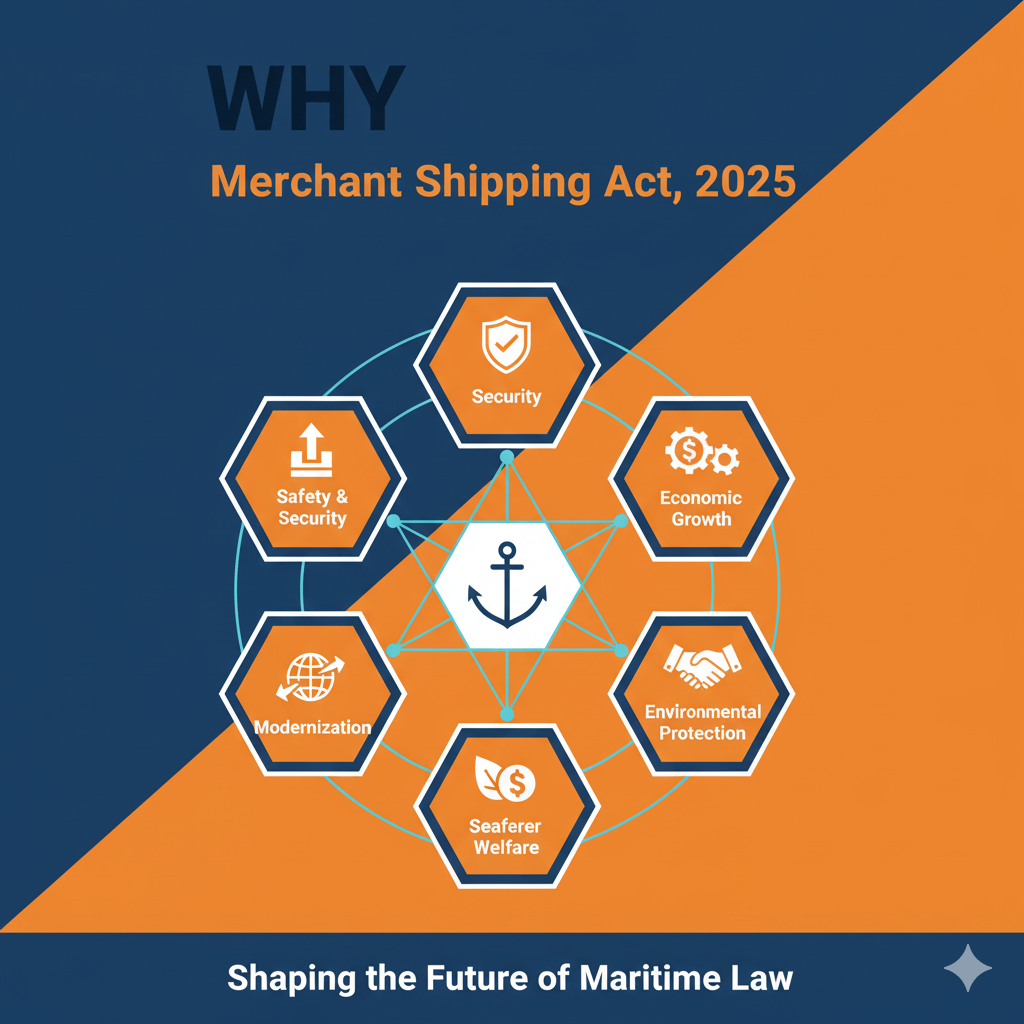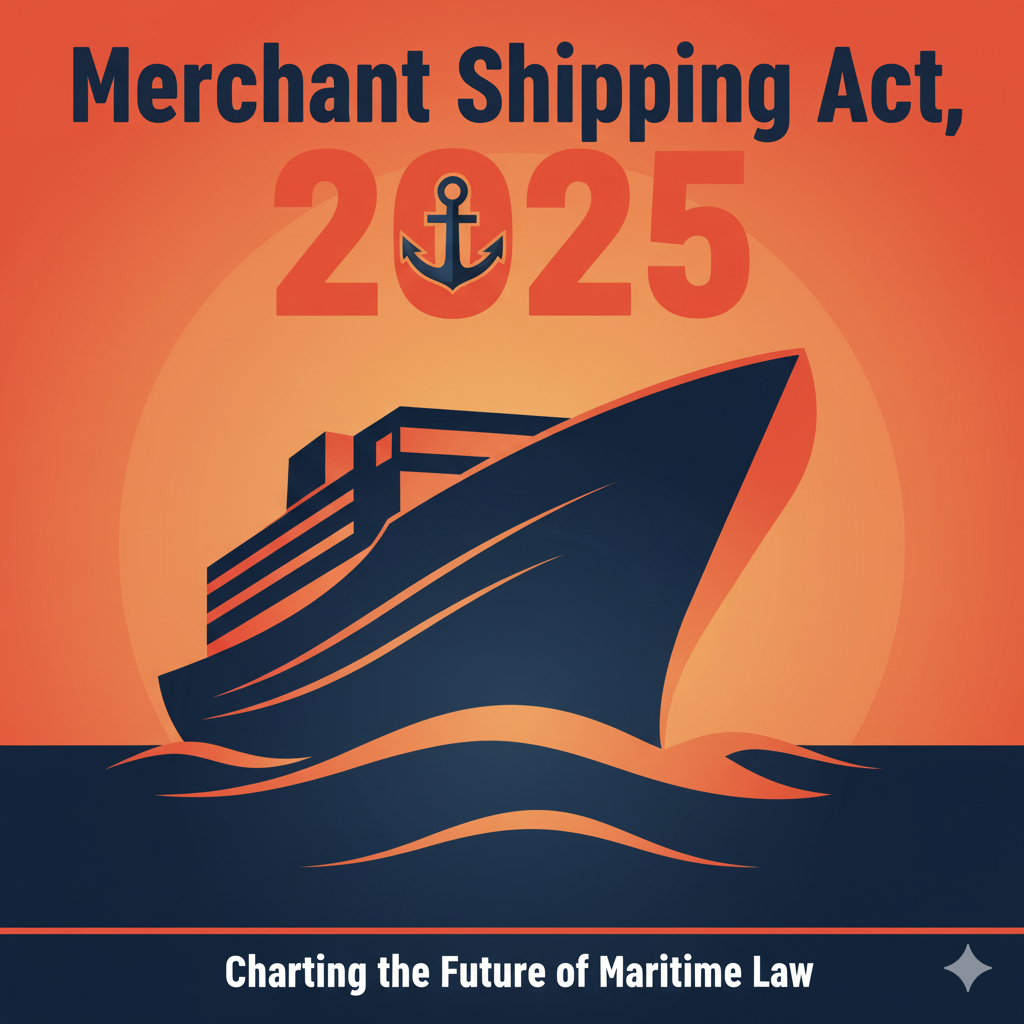The ministry of law and justice recently rolled out Merchant Shipping Act 2025 (MS Act 2025), the act aims to uplift the maritime industry further and focus mainly on the welfare of those who work at sea. Sections 4, 5, and 6 lay the foundation for two crucial boards and explain how rules will be made to run them. Before we dive further be sure to understand and learn about the preliminary of this act.

In today’s blog we will learn about
Table of Contents
National Shipping Board (NSB), MS Act 2025
Section 4 is brought out under Establishment of boards and general administrations – Part II of the new shipping act. It is all about the establishment of the National Shipping Board that will be created by the central government through a notification. The section further expands into the key features of this board and structure of how it will work for the welfare of the marine industry.
The National Shipping Board will include:
- A total of 6 members of the parliament
- 4 of them will be from Lok Sabha and
- 2 of them will be from Rajya Sabha
- Up to 16 members representing:
- Central Government
- Ship owners
- Seafarers
- Other relevant stakeholders
The number of ship owners and seafarers must be equal and at least 4 of the 16 official members should be women.
A chairperson for this board will be nominated by the central government and MPs or the Chairperson will not be treated as holding an “office of profit” (so they don’t get disqualified under the Constitution)
FUNCTIONS & DUTIES OF THE BOARD

- The board members are required to advise the government on Indian shipping development/ welfare.
- Along with any other issues referred by the government
- The board is allowed to set the rules and regulations in terms of conducting the official meetings amongst themselves
- The membership of the MP’s will be revoked if they lose their seat
The NSB’s role is mainly advisory. It will provide recommendations on policies and issues related to Indian shipping and any other matters referred by the government. The Board will regulate its own procedures, and members will receive allowances as prescribed.
Seafarer’s Welfare Board (SWB), MS Act 2025
Section 5 of the merchant shipping act is all about the establishment and implementation of the Seafarer’s Welfare Board (SWB), as the name states this particular board focuses exclusively on the welfare of seafarers and the workers that put their life at line working for the sea.
The Seafarer’s Welfare Board focuses on:
- Guiding the government through setting up hostels, boarding facilities, clubs, canteens, and libraries for seafarers.
- Establishing hospitals and medical care services
- Providing educational opportunities for seafarers.
- Offering support to distressed or abandoned seafarers, including foreign nationals stranded in Indian waters.
These welfare organizations will be funded though the fee collected by the shipowners, with rules on collection and usage defined by the government.
If you are a Entrepeneur looking to open up a business in the maritime consultancy RPSL firm, follow this guide. and if you are looking to start a maritime training institute follow this guide.
Central government authority over the shipping boards, MS act 2025
Section 6 of the MS act 2025 aims to define the power of central government authority over the formation of shipping rules and regulations, according to this specific section the central government is allowed to:
- Define the terms of office, allowance and conditions of both the boards (NSB and SWB)
- Select and appoint officers and staff to assist the newly formed boards
- Create the rules and regulations for the fee collection (SWB) and set the tone for the utilization of the said fee
- Ensure port-based welfare facilities are established and available for the seafarers working tirelessly for the marine lines.
Section 6, essentially states and sets the tone for the power the central government can have over the shipping industry.
Why this act matters

The newly revised act of merchant shipping is destined to strengthen maritime governance over time, and it is a very crucial step towards the welfare of seafarers, both Indian and foreign who face tough conditions while working for the sea. And at its best this new revelation aligns with India’s interest in global best practice in shipping and seafarer welfare.
To conclude, sections 4,5&6 of the new act marks a major step towards the modrenizing Indian maritime governance. By setting up the National Shipping Board for industry development and the Seafarer’s Welfare Board for crew well-being, the law balances growth with human priorities. The Central Government’s rule making powers under Section 6 ensure that the framework remains flexible and adaptable to changing needs of the maritime sector.
In short, this structure aims to strengthen India’s role as a marine nation while safeguarding its seafarers. Just like the new rules and curriculars DG shipping are rolling out in order to better the marine industry and its seafarers. And it is important to understand these said curriculars to be on top of the shipping business.
FAQs
- What is the National Shipping Board and who are its members?
The National Shipping Board is an advisory body created by the Government. It includes Members of Parliament, representatives of the Central Government, ship owners, seafarers, and other stakeholders, with at least four women members. - What is the role of the Seafarer’s Welfare Board?
The Welfare Board advises the Government on measures to improve the lives of seafarers, such as hostels, canteens, hospitals, education, and support for abandoned or distressed seafarers. - How will seafarer welfare facilities be funded?
Owners of vessels will pay a prescribed fee, which will be collected and used for seafarer amenities like hostels, hospitals, and welfare centers at ports. - Who appoints the Chairperson of the National Shipping Board?
The Central Government nominates one of the members as the Chairperson of the Shipping Board. - Do Members of Parliament lose their seat if they join the Shipping Board?
No. MPs on the Shipping Board or serving as Chairperson are not considered to be holding an “office of profit,” so they don’t lose their parliamentary membership.
- What powers does the Central Government have under Section 6?
The Central Government can make detailed rules about the functioning of both Boards, appointment of staff, collection of welfare fees, and setting up of port-based welfare facilities.

